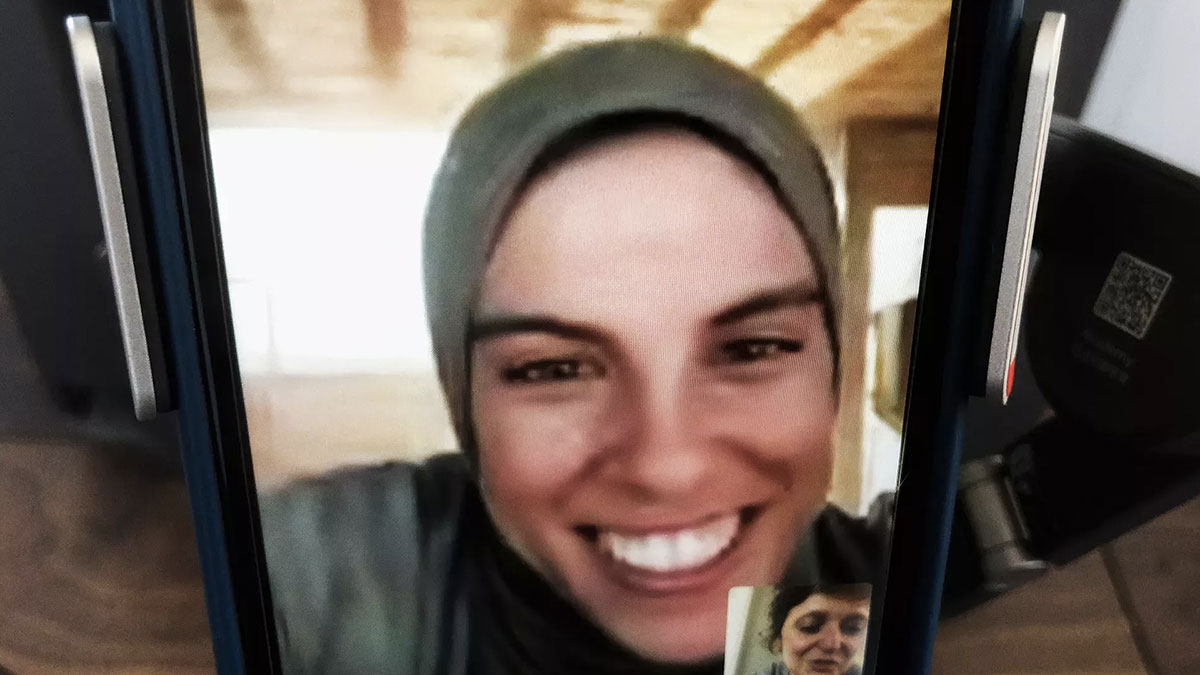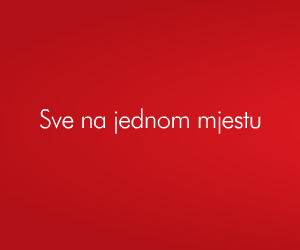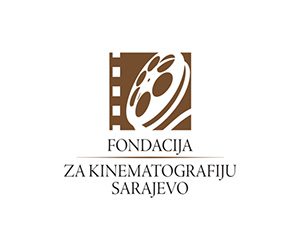
06/10/2025
It is terrible that the protagonist was killed, which has never happened before in the history of cinema
“Put Your Soul on Your Hand and Walk”, a documentary film by Iranian director Sepideh Farsi, made a strong impact at Cannes and sparked conversations about Gaza and the safety of journalists — especially due to the tragic fact that the film’s protagonist, photojournalist Fatma Hassona, was tragically killed just one day after the film was selected for screening at this prestigious festival. In the interview with Večernji list, Farsi explains how Fatima’s death deeply affected both her and the film, and she speaks about the challenges of working under bans, threats, and ethical dilemmas. The Iranian director also announces new projects, animated film ‘’Memories of Undutiful Daughter’’, inspired by her own life, and adds that her focus will always be on the subjects of freedom and strong female characters. The occasion for this interview, in addition to the aforementioned, is also the fact that the film has been selected for the 26th edition of the Mediterranean Film Festival.
The film “Put Your Soul on Your Hand and Walk” has become a symbol of discussions about Gaza and the safety of journalists at the Cannes Film Festival. How did you feel in the moment when Juliette Binoche said that “Fatma should be here tonight” at the festival’s opening, and how much did this “Cannes effect” truly increase the film’s visibility?
I believe that this has definitely increased the film’s visibility – this is Cannes, a world-renowned festival. Of course, it is a terrible and shocking fact that Fatma Hassona became a target for the Israeli army and was killed together with her family. Even though the tribute paid to her by the festival and Juliette Binoche was somewhat reserved and not so direct, it still contributed to the film’s visibility. In addition, the fact that she was killed, and she was the protagonist of the documentary and a photographer, and was targeted like many other journalists in Palestine and other parts of the Middle East – Lebanon, Syria – using the same methods of the Israeli army simply for documenting war and genocide, gives the film additional weight. The film's visibility is therefore part of the tribute, but above all, it stems from the terrible fact that the protagonist was killed, which has never happened before in the history of cinema.
More than 300 movie stars (from Richard Gere and Ralph Fiennes to Susan Sarandon and Javier Bardem) had signed the letter “For Fatem” before the festival. To what extent does the voice of celebrities actually help – and when is there a risk that this becomes just a symbolic gesture without any real impact?
We were touched by this gesture. The number of signatories reached almost 400 by the start of the festival. This is important, but the problem arises when gestures like this one are not accompanied by political actions – sanctions, boycotts, and specific measures. Otherwise, their impact fades, and they become empty symbols. I still appreciate the gesture, but it is crucial that it is used as an instrument to pressure governments and political institutions to do the right thing – in this case, responding to the genocide in Gaza at the government level, as was done to Putin and Russia for the aggression against Ukraine. This has not happened yet, and in that sense, I feel frustrated.
You said that many speeches hadn’t “named the perpetrator”. Is a festival – even Cannes – the right place for the political statements or should film communicate more indirectly, through image, sound and testimony?
I believe that film and politics are not separated. The festival is the right place for naming the perpetrators, because it is important to clearly identify those responsible for criminal acts or the states that carry them out.
The film is composed of WhatsApp video calls, interruptions, “unrefreshed” images that sometimes transform into visual abstraction. I assume this was a conscious choice to “resist sharpness” — is this an aesthetic response to the impossibility of physically entering Gaza?
Yes, this was an aesthetic decision to emphasise the fragility of communication and limitations in access. The internet in Gaza was blocked to 2G, and the connections were frequently interrupted. Filming with a mobile phone gave a more human dimension to the images, which aren’t sharp, as you mentioned in your question. I could have simply filmed it differently, but it wouldn’t have had the same effect at all, because the frame would have been rigid and without any fluidity. I wanted to focus on her face, get closer, but also to pull back and somehow merge with the image.
The relationship between the director and the protagonist: how did you balance the ethical line between intimacy and exploitation – especially after Fatma's death? Did you change the editing, tone, or perspective of the narrative?
The line was set from the very beginning. Right from the first conversation that I had with her I explained to her what my goal was – to make a film – and we both knew that. Fatima knew that all the conversations would be included in the film. We had intimacy, and it was very intimate, but we both always knew that it was for the purpose of making the film. She was killed on the 16th of April, I found out about that a day later, and my first reaction was not to change anything in the film; I wanted it to remain exactly as it was while she was still alive. This was a film that she was supposed to come and watch and present with me. After a few weeks, I decided to include a small part of our last conversation, dated April 15, because I felt it was important for viewers to see and witness the joy she showed when she learned about the film's selection and when we discussed the potential danger. She said that she would come to the festival, but after that, she would return to Gaza and explained her reasons. The rest of the film remained as it was.
The sad fact is that the film has become much more famous due to this tragedy. How do you cope with all this?
Yes. I wish Fatma had been with me and the film had been "smaller", but that was not my choice. I address this question to those who commit these murders; all I can say is that Fatma wrote down the words I am about to say. She wanted a dignified death, and wanted the whole world to see her photos and hear her testimony. She was a witness who conveyed the truth. What I can do now, and what I am doing, is to help spread the film as widely as possible, and there is also a book with her poems and photographs that has now been published, and I am trying to convey her message as strongly as possible.
The film lasts for almost two hours and in a way teaches the viewers “how to watch” imperfect images and listen to the silence. You intentionally left gaps, pauses and freeze frames. How did the Cannes selectors accept that?
I think their reaction was very good and they appreciated the film. They strongly supported it, because there were only nine films in this selection, and ours, as far as I know, was the first one selected. For the same reason I mentioned earlier, I wanted to create an experience that conveys the sensitivity and fragility of communication. Partly through the way of filming, and partly by keeping the gaps and interruptions in the editing, I wanted the viewer to feel the same frustration that I felt, as well as the fact that each of our conversations could have been the last, and the joy that we felt every time she even answered my call.
The film is also a portrait of female courage. This is confirmed by Fatma's sentence, "Every day you go out into the streets, put your soul on your hand and walk."
This is the key message she conveyed and that’s why I kept it as the title of the film. For me, it represents what she was actually doing – taking photos in Gaza, which was extremely risky. She was not killed while she was taking photos, but because of the testimony she was conveying. She said that she didn’t want to be just a figure at the end of the film. It was extremely brave of her to do this despite the risks. We know that she is not the only one, there are others. I want to emphasise that Gaza didn’t start on October 7, with the Hamas attack. This has been going on for at least 75 years, and even longer. There are other examples of female solidarity, like cutting hair for Iranian women, and that’s fine. But people who are doing that aren’t taking any real risks. The same goes for me — I made this film alongside her, but I wasn’t there with her, I wasn't taking any physical risks. There has to be a distinction between those who are there and those of us who are here.
To what extent is this film also a story about working under bans and threats? What would you say to filmmakers who often face numerous obstacles, but also have strong ethical ambitions?
I have always tried to overcome obstacles – whether it was censorship, filming permits, sometimes finances when I didn't get funding, and in this case also because of Israel, because I couldn't enter Gaza, and it wasn't easy to film and work in Cairo either – I had to be very careful. But, I believe that there is always a way, with a smaller or larger budget, alone or with the help of others. I made most of this film on my own, with Fatma, of course. I don’t think that it really matters where you are – I was shooting a film about Iran from Athens, because I have been banned from entering my own country since 2009. A lot of things are possible today, but the most important thing is the core of the project – the integrity and ethics behind it, more than anything else.
You said that your focus right now is on the promotion and visibility of the film, but after that, do you already have a new project, topic or a new form planned that you want to explore?
I am working on an animated film titled “Memories of Undutiful Daughter”, which is based on my life. I also have other projects related to Iran, freedom, strong female characters and topics important for today’s world. Certainly, I hope to return to the Mediterranean Film Festival again with one of my next films.


